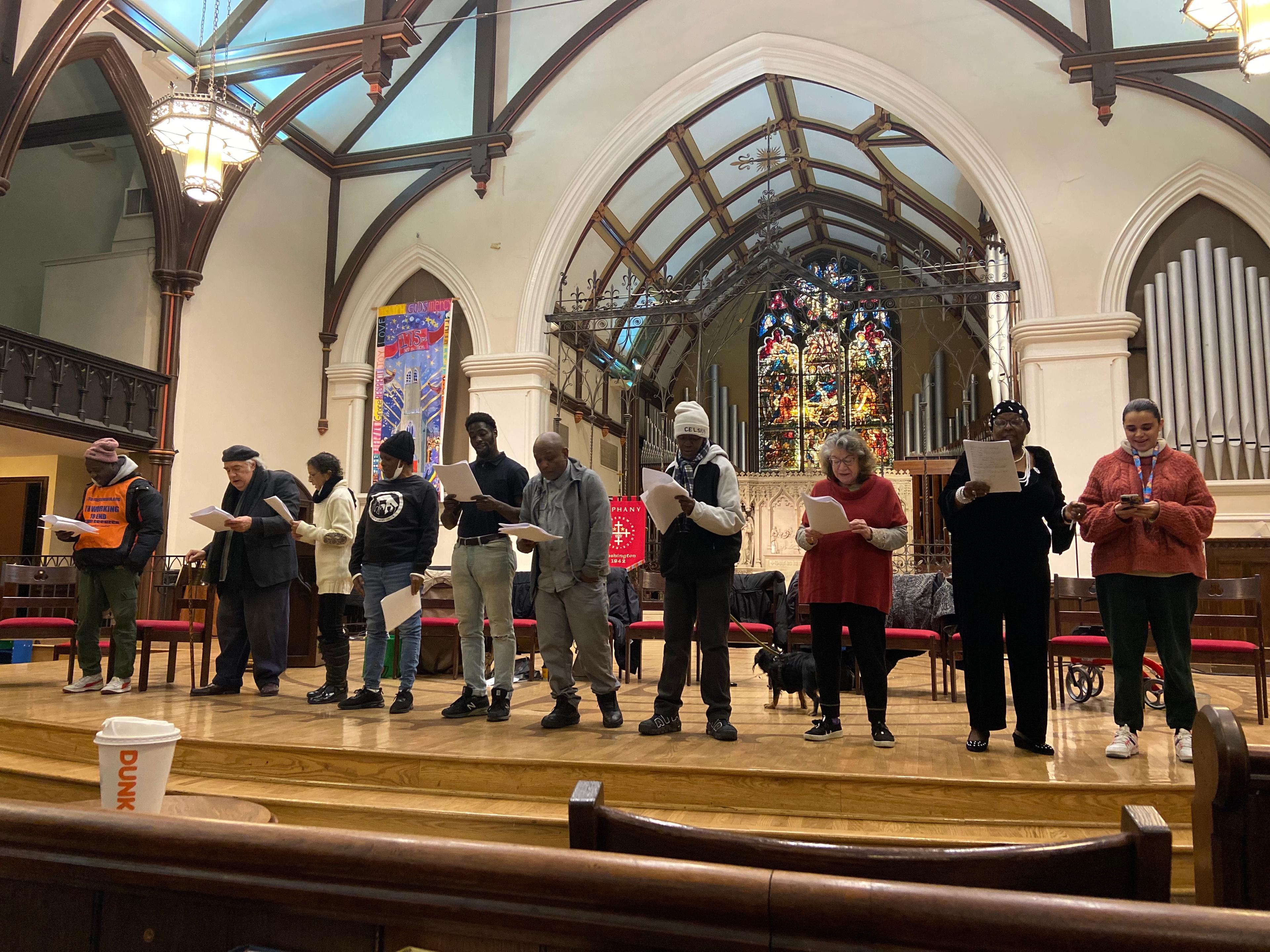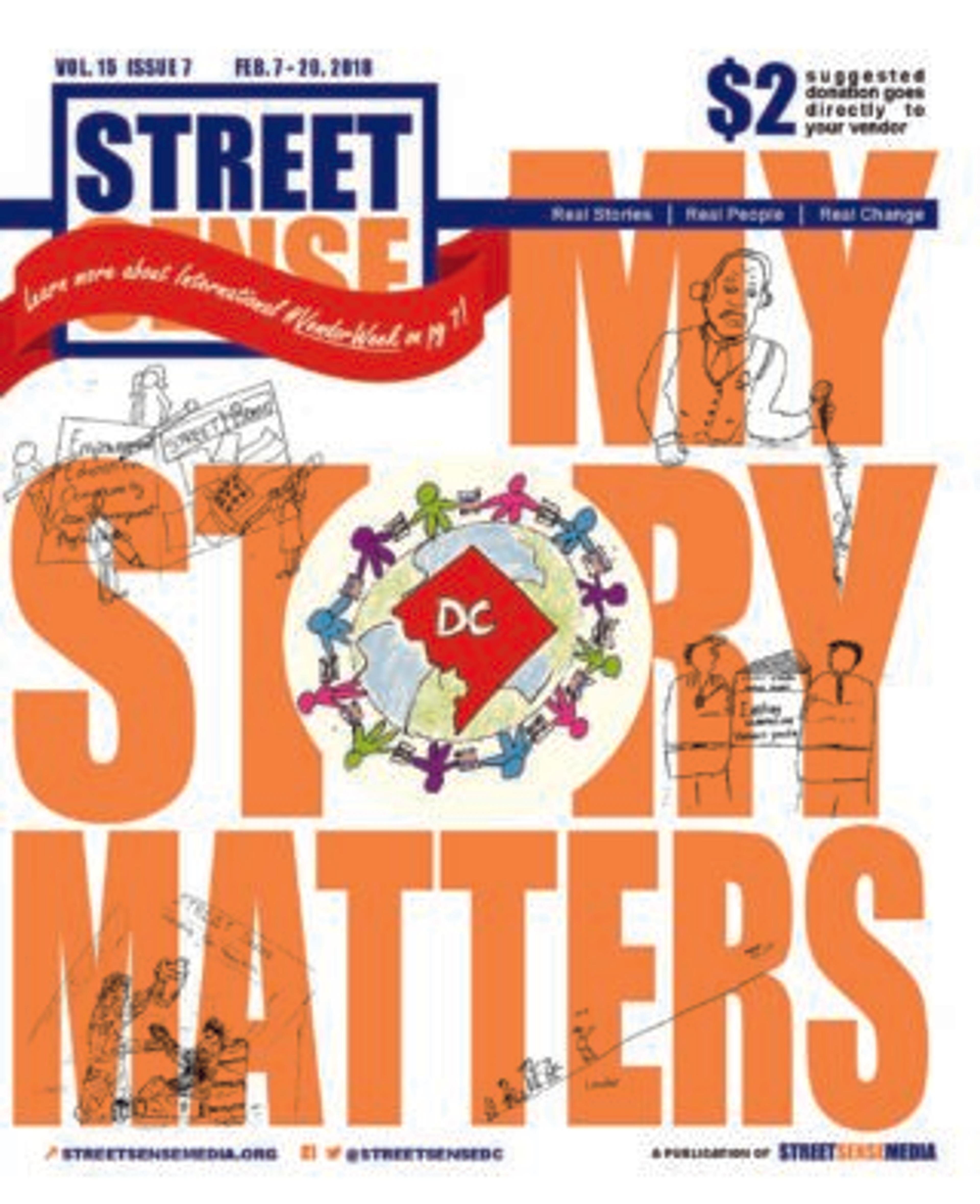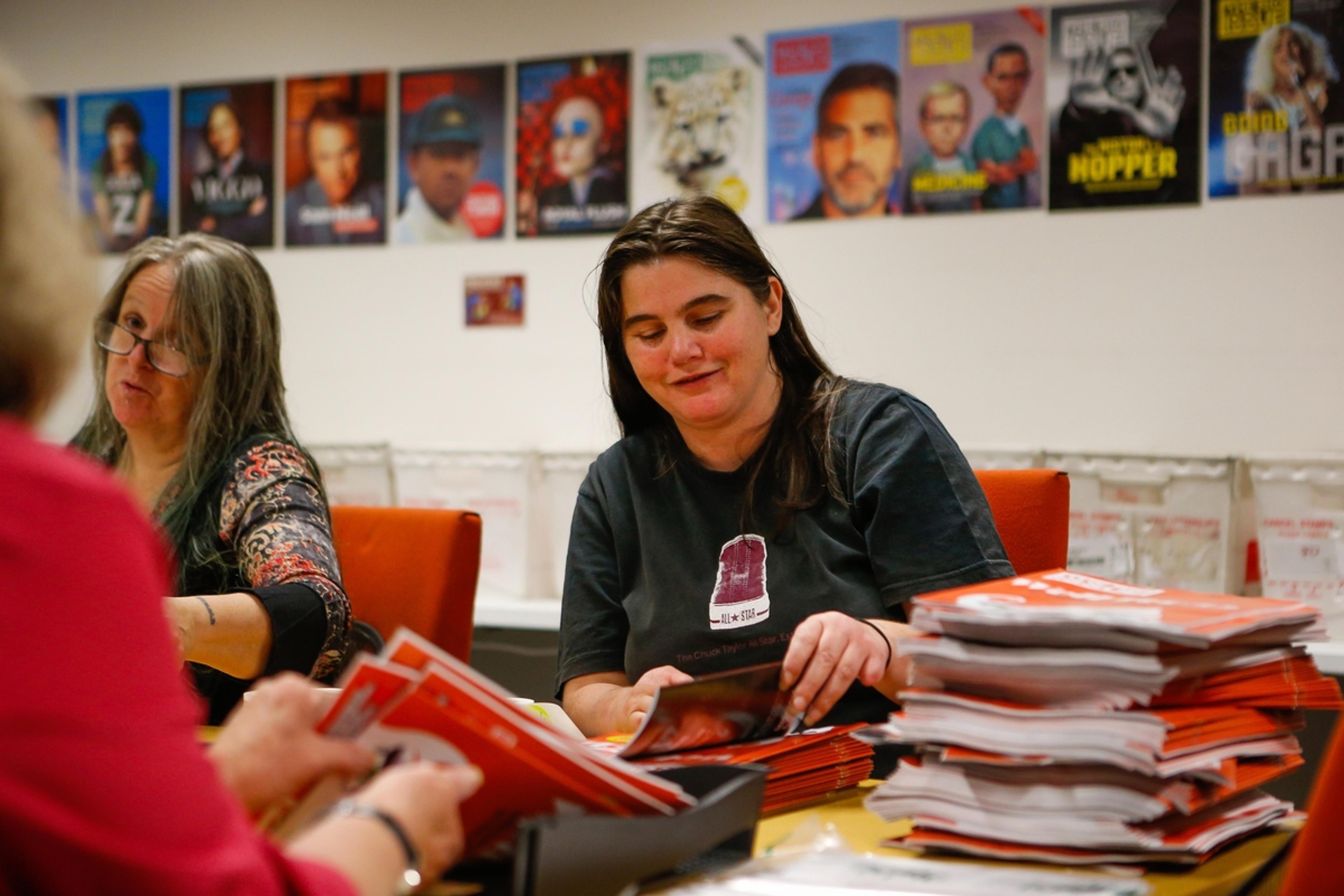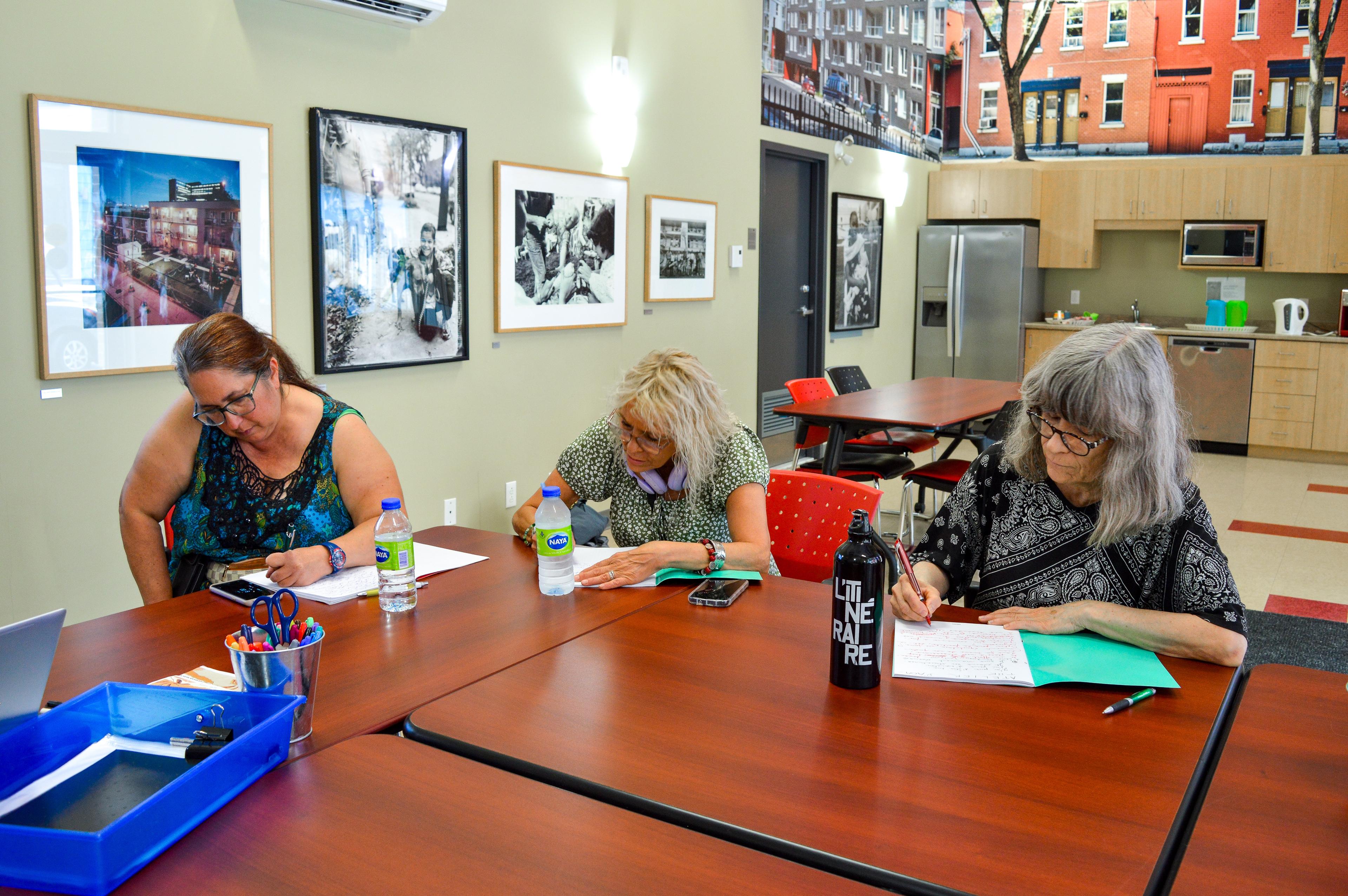Jet Flegette, a vendor who performed in the play, agreed that rehearsing the script was the most emotionally challenging part.
“You’ve got to be real with your feelings,” she said. “When the script says, ‘I’ve been down, alone in the streets, beaten and scared with nothing to eat,’ that’s really true. I’ve been in that position before.”
Around 11 vendors contributed to the writing of the play, which contains a blend of personal experiences with homelessness from all the performers. It also underwent many changes during the past six months, according to multiple people who acted in the play.
Flegette also said that while acting in front of a live audience can be nerve-wracking and stressful, it was something she felt compelled to do.
“I figured if I can sell a paper to people out in the streets, I can stand up in front of people I don’t know and tell them what [this play] is about,” she said. “It was an opportunity to be a part of something, you know?”
Other members of the theatrical group similarly shared similar excitement with the success of their initial performance.
“It was just so amazing for me and I do look forward to the next one,” Queenie Featherstone, another Street Sense Media vendor who played a part in the show said. “I’m going to master the skill of acting. Then one day, I will receive a Tony Award.”
Nikila Smith, a vendor who watched the performance, said that she left it thinking about an idea first brought on by Featherstone in a monologue about possible solutions to homelessness. On stage, Featherstone proposed starting a fund to encourage people to open up their homes temporarily to people experiencing homelessness.
“It sounds like a good idea to get people on their feet,” Smith said.
The experience of homelessness can be solitary, she added, and it helps to have opportunities to interact with people with different kinds of life experience.
“This [play] was really nice and I want to be in it next time,” Smith said.







